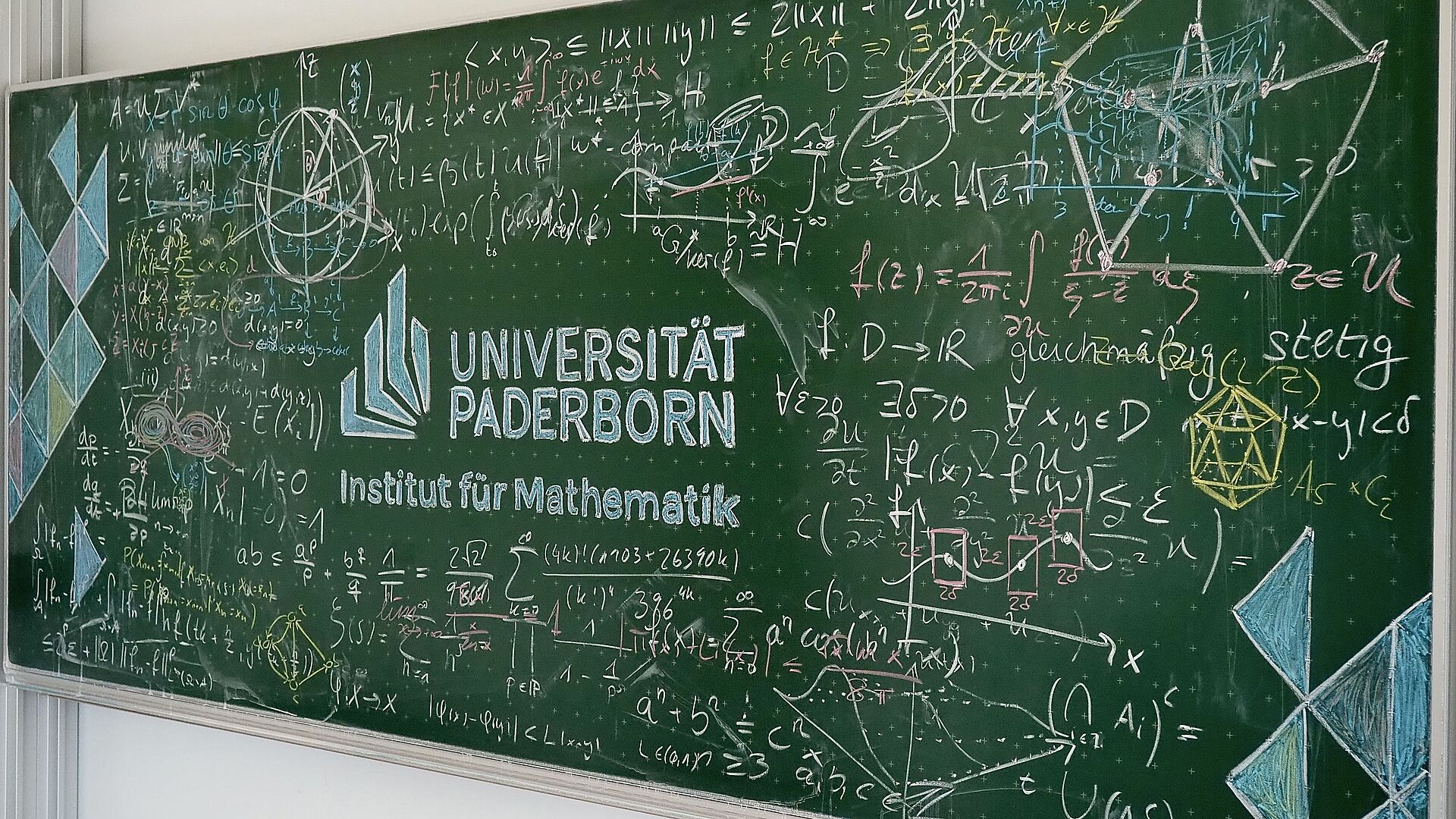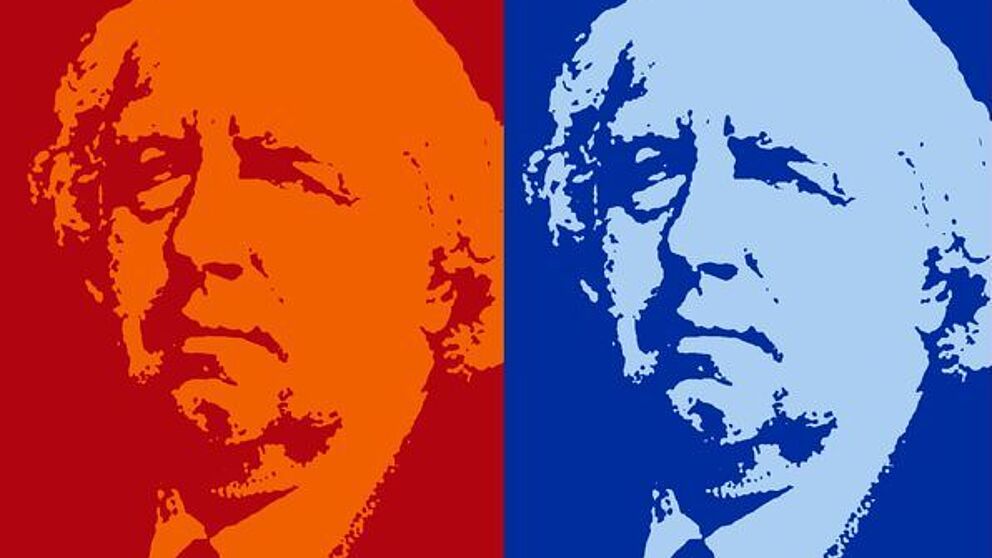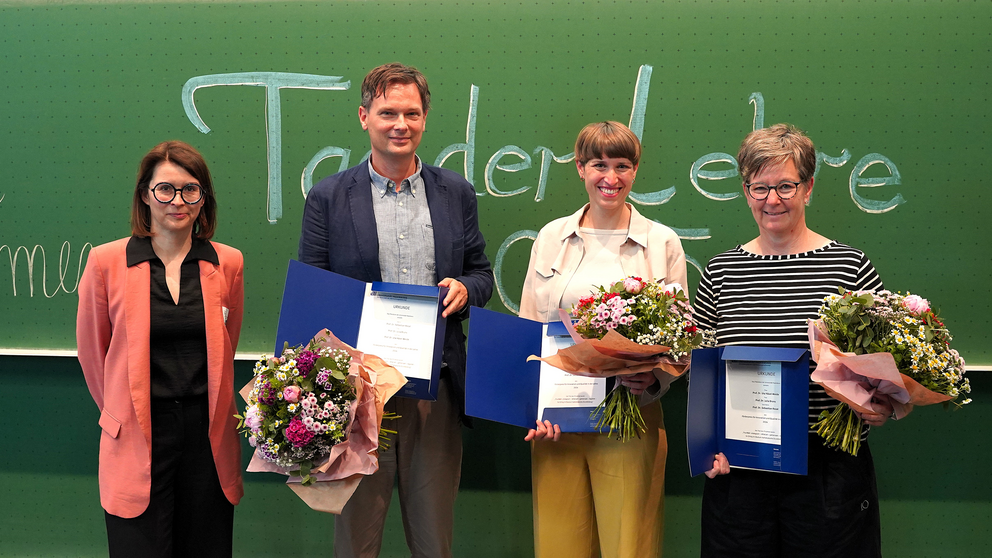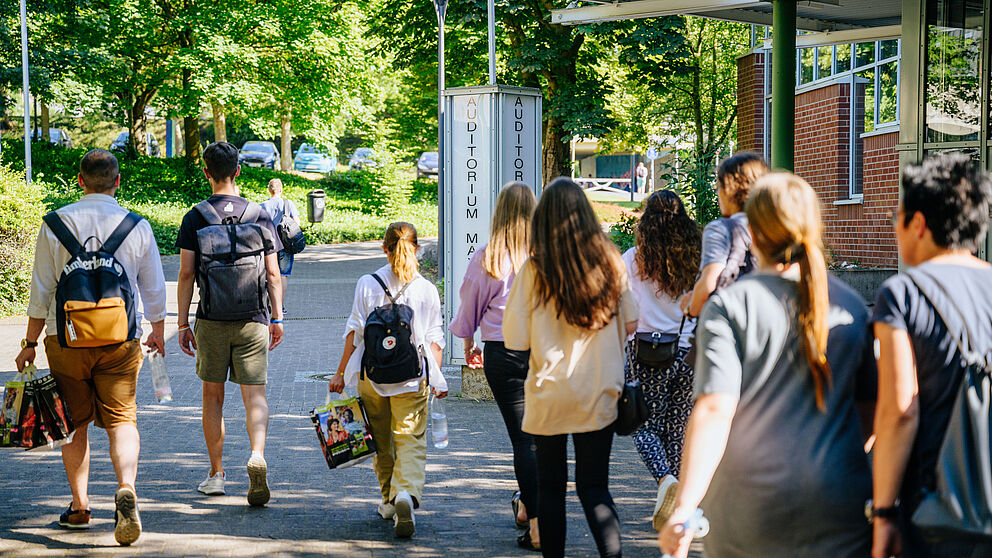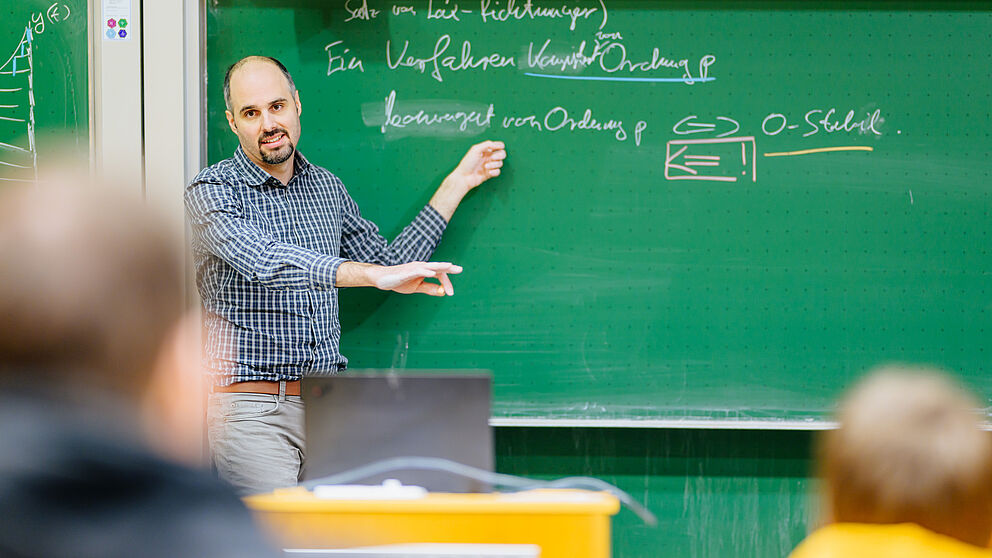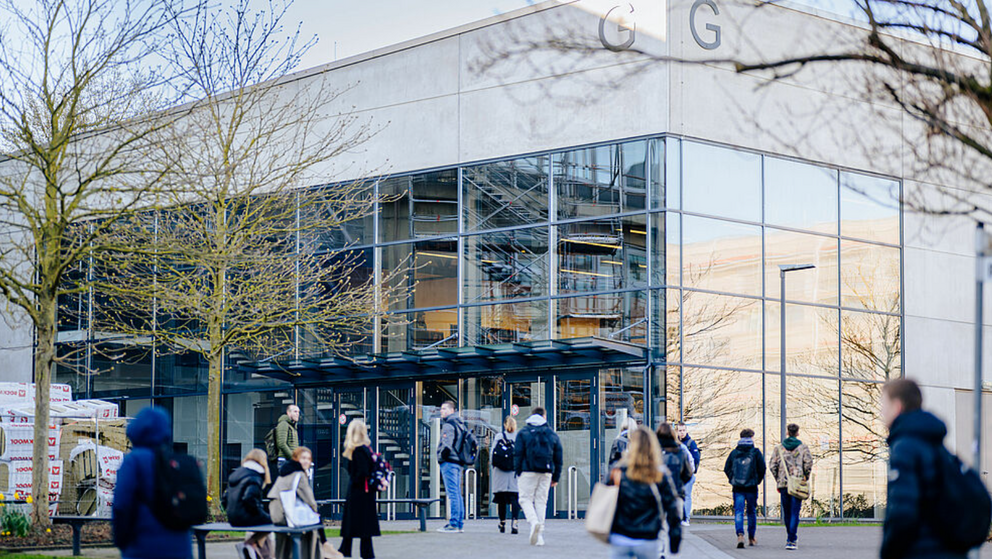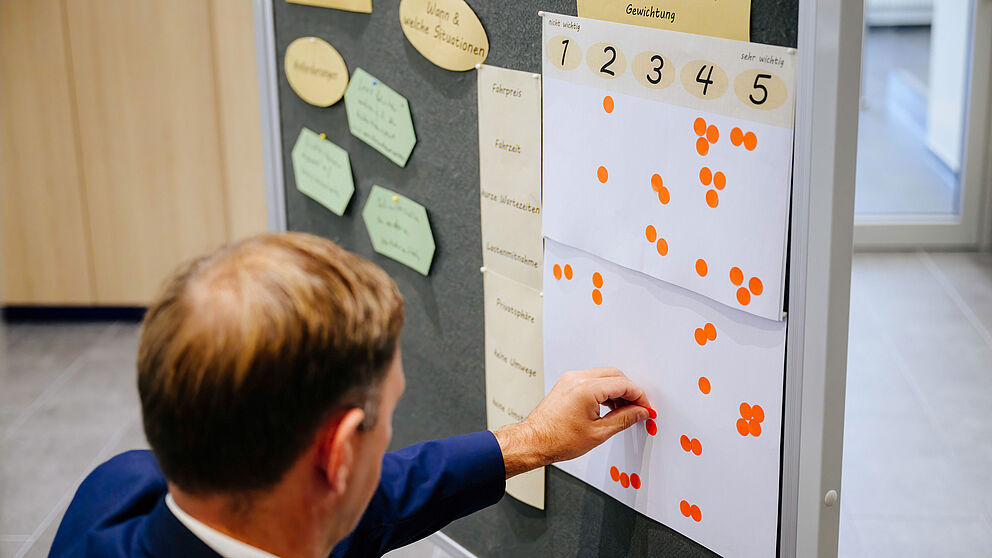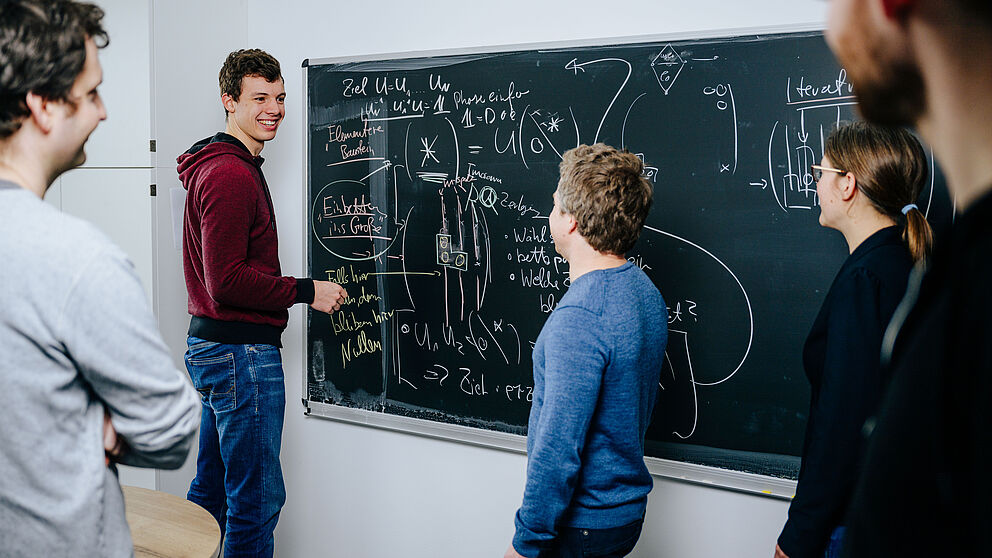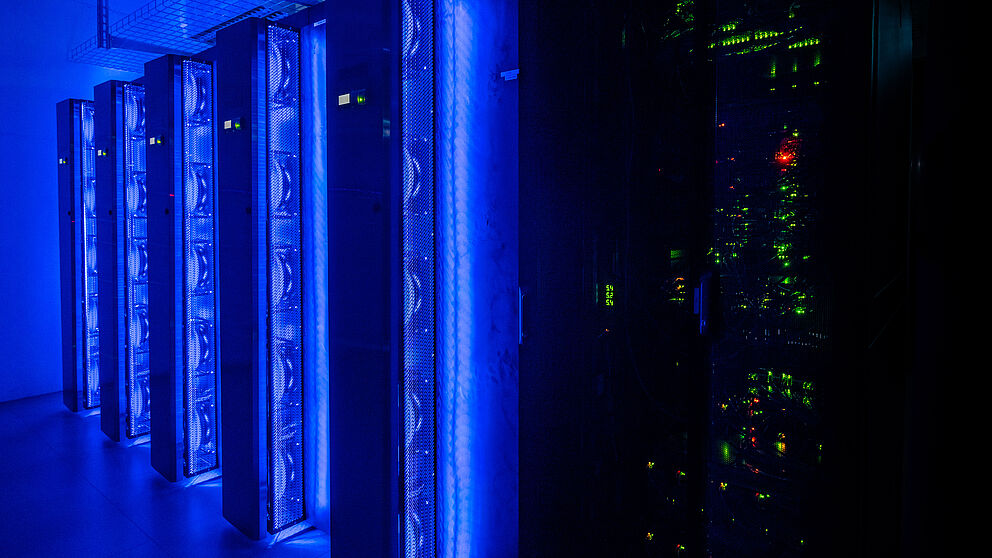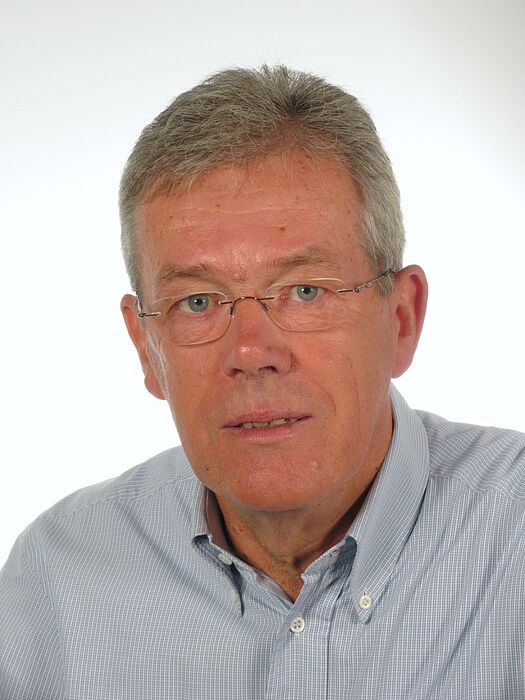Die Paderborner Mathematiker und mit ihnen die Universität Paderborn betrauern den Tod von Helmut Lenzing, der am 13. Oktober 2022 verstorben ist.
Herr Lenzing wurde am 16. April 1939 in Beuthen (Oberschlesien) geboren. Er studierte Mathematik, Physik und Philosophie an der Freien Universität Berlin. Im Jahr 1964 promovierte er bei Karl Peter Grotemeyer, dem späteren Rektor der Bielefelder Universität. Nach dem Wechsel von Berlin nach Bielefeld und der Tätigkeit als Assistent und Oberassistent wurde er zum Wissenschaftlichen Rat und Professor ernannt. Im August 1972 wurde er an die neu gegründete Gesamthochschule Paderborn als Vertreter für das Fach Mathematik berufen. Als erster Dekan des damaligen Fachbereichs Mathematik-Informatik übernahm er den Aufbau des Fachbereichs und legte die Grundlagen für seine weitere Entwicklung.
Herr Lenzing war in den Jahren 1972-1976 Mitglied des Gründungssenats und auch später mehrfach Mitglied des Senats der Universität. Er war Mitglied in mehreren Kommissionen und Gremien, insbesondere in der entscheidenden Phase des so genannten Qualitätspakts mit der Landesregierung, der zu erheblichen Umstrukturierungen der Universität Paderborn führte. Seit Gründung der Fakultät für Elektrotechnik, Informatik und Mathematik im Jahre 2002 war er Prodekan und Leiter des Instituts für Mathematik. Im Juli 2006 ging er in den verdienten Ruhestand.
Die Forschung von Herrn Lenzing lag an der Schnittstelle der algebraischen Geometrie, der homologischen Algebra und der Darstellungstheorie endlichdimensionaler Algebren. Insbesondere war er einer der ersten Mathematiker weltweit, der die Bedeutung und das Potential der Technik von abgeleiteten Kategorien in der Darstellungstheorie endlichdimensionaler Algebren erkannt hat. Anfang der 80-er Jahren wurde von ihm der Begriff der gewichteten projektiven Geraden eingeführt. Seine bahnbrechende gemeinsame Arbeit mit Werner Geigle zu diesem Thema war von maßgeblicher Bedeutung für das Entstehen und die Entwicklung der nicht-kommutativen algebraischen Geometrie.
Seine klaren und immer perfekt vorbereiteten Vorlesungen und fachlichen Vorträge bleiben uns in Erinnerung. Sein Tod reißt eine schmerzliche Lücke. Wir werden Herrn Lenzing sehr vermissen.
Igor Burban
Mathematics in Paderborn
Mathematical research, from fundamentals to application, is the key to technical innovation. A high-calibre mathematical education forms the foundation for the development of future professionals. The Institute of Mathematics in Paderborn is characterised by a wide range of excellent research, from pure mathematics to industrial cooperation and research in mathematics didactics. In our range of courses, we offer top-level international training in mathematics and technomathematics as well as highly rated teacher training programmes for the entire range of school types.
Research
At the Institute of Mathematics, our research spans from fundamental mathematical studies to interdisciplinary collaboration. In the CRC TRR 358 project, Integral Structures in Geometry and Representation Theory, mathematicians from analysis and algebra work across traditional disciplinary boundaries. Additionally, our research focuses on stochastics, applied mathematics, and close partnerships with industry. We also place strong emphasis on mathematics education, integrating it into the Institute through collaborative research projects between mathematics education specialists and mathematicians.
Study
Further information on the special features of Paderborn University and general information on studying mathematics can be found here.
